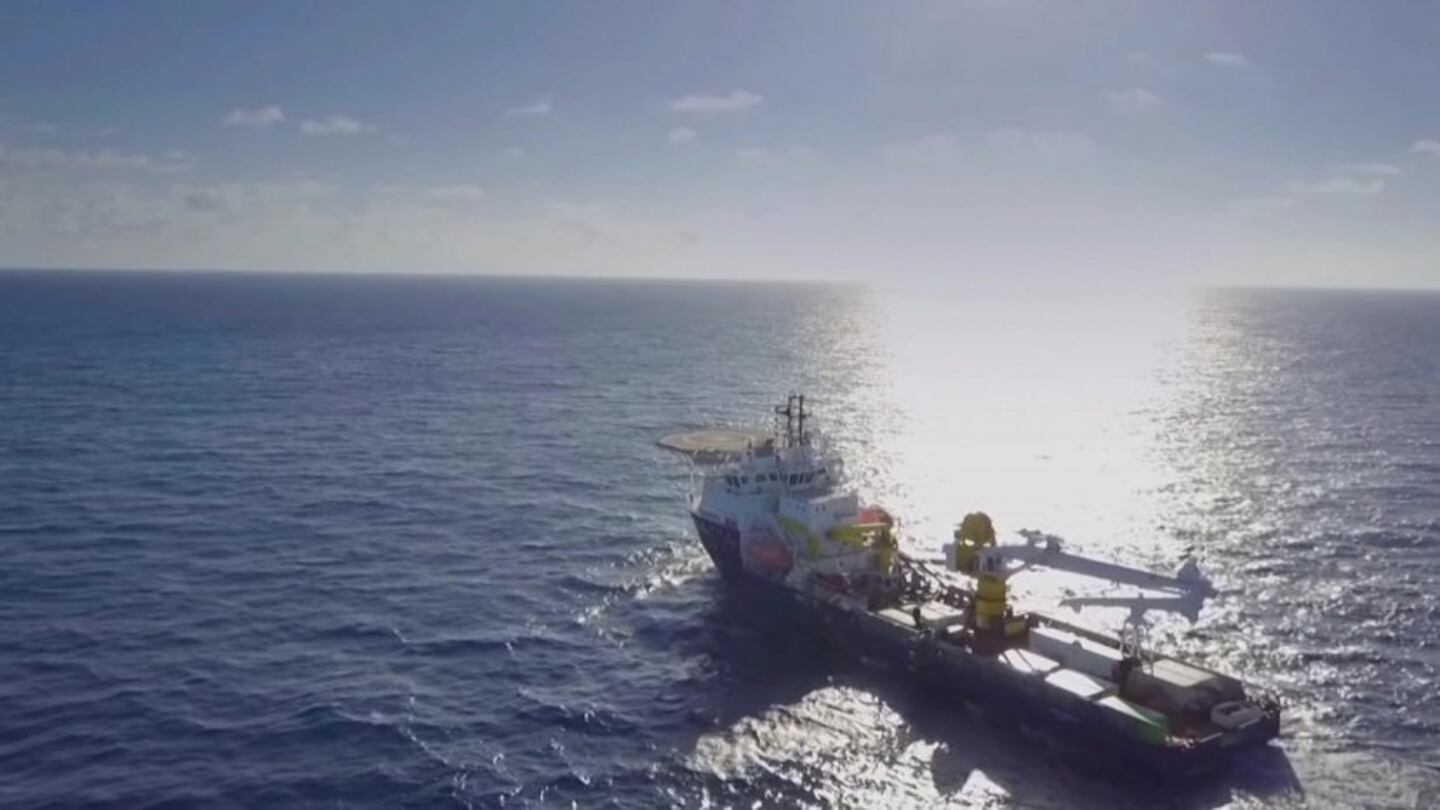Seabed mining opponents are concerned deep sea mining could begin in the Pacific as early as this month after a shock decision from regulators to allow a company to start a trial exploration near Hawai'i.
The International Seabed Authority (ISA) has granted Nauru Oceans Resources Incorporated (NORI) permission to begin exploratory mining in the Clarion Clipperton Zone between Hawai’i and Mexico.
NORI is a subsidiary of Canadian-based The Metals Company that produces metals from polymetallic rocks to power electric vehicles to supply metals for the clean energy transition with the least possible negative environmental and social impact and (2) accelerate the transition to a circular metal economy.
NORI says its offshore strategic partner, Allseas, will test a system consisting of a prototype nodule collector at the seafloor and the riser system to bring nodules to the surface production vessel, Hidden Gem. Approximately 3,600 tonnes of polymetallic nodules are expected to be collected during the trial beginning later this month with an expected conclusion in the fourth quarter of 2022.
The Metals Company chairman Gerard Barron says the company has worked tirelessly on its environmental impact statement and environmental monitoring and management plan, including integrating feedback and recommendations by ISA's Legal and Technical Commission.
Trials 'an important step'
"With this green light from the ISA, the team of world-class engineers from Allseas and scientists from some of the world’s leading deep-sea research institutions that we’ve brought together can begin technology trials and our impact monitoring campaign.
"We have a couple of exciting and no doubt challenging months ahead of us. The environmental and operational data and insights from these trials will be an important step in ensuring the safe and efficient collection of polymetallic nodules to supply critical battery materials for the clean energy transition.”
However, Greenpeace Aotearoa says the move signals the beginning of a new and destructive extractive industry that will place profit before people and biodiversity, threatening ocean health and people’s way of life.
Greenpeace Aotearoa seabed mining campaigner James Hita says, "deep sea mining is now right upon our doorstep and is a threat to each and every one of us. The ocean is home to over 90% of life on earth and is one of our greatest allies in the fight against climate change.
'Lack of transparency'
"Greenpeace will not stand by quietly as deep sea mining companies begin to plunder the seafloor and decimate biodiversity for profit.
"This latest decision from the ISA will have come as a shock to civil society who were shut out of the decision-making process, highlighting a lack of transparency from the authority."
The ISA was set up by the United Nations in 194 under the Convention on the Law of the Sea with a mandate to ensure the protection of the marine environment from 'harmful effects' of deep-seabed related activities.
Hita says it is instead enabling mining of the critically important international seafloor.
"The Legal and Technical Commission, which approved this mining pilot, meets entirely behind closed doors, allowing no room for civil society to hold them to account. This mechanism is simply unacceptable."
The Metals Company says following its initial EIS submission in 2021, Nauru, the sponsor state of NORI undertook consultation with stakeholders. An updated EIS was submitted in March this year. Barron says "together with stakeholder comments, this has improved the EIS and demonstrates the robustness of the ISA’s regulatory review process.”
'Wrong approach'
Green Party spokesperson for Oceans and Fisheries (Pacific), Teanau Tuiono is disappointed permission has been granted, and is furthering his call for the New Zealand government to support a moratorium on seabed mining.
"We don’t yet have enough knowledge of the marine environment to know whether we can do this safely or not, so it shouldn’t be happening at all. We risk destroying precious marine ecosystems."
Tuiono, who is also a member of the Pacific Parliamentarians Alliance on Deep Sea Mining, believes independently monitored mining and low-impact mining in the name of low-carbon emission vehicles is the wrong way of looking at solving climate change.
"We’d be trying to solve one environmental problem while creating another. We don’t need to recklessly dig up the ocean floor with no view to the potential consequences. The Pacific Islands have contributed almost nothing to the causes of climate change and yet here we have western countries expecting the Pacific to destroy their environment because of the problems they have created.
"Analysis of the environmental impacts is well and good but the ISA is prioritising mining here, and doing the science as it goes. The priorities are the wrong way around and the Greens support a precautionary approach. It’s possible that once those ecosystems are gone, they’re gone forever. We need a moratorium – not to start and see what happens. That’s reckless and wrong."


